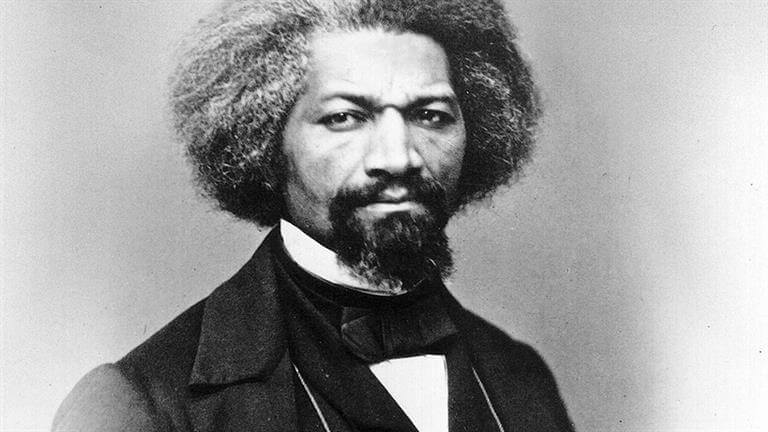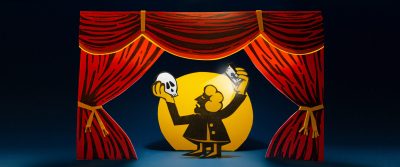Celebrating Frederick Douglass on Martin Luther King Day with Ted Hamm

On Monday, December 17, 1866, Frederick Douglass stood in Brooklyn. He spoke at Plymouth Church in Brooklyn Heights, a stronghold of white abolitionism lead by Henry Ward Beecher. (You can see Beecher’s statue in front of Borough Hall, and his sister’s work of moral suasion, Uncle Tom’s Cabin, on bookshelves everywhere). It had been nineteen months since the Civil War ended, and Douglass was contemplating the fruits of the war from the vantage point of the early Reconstruction. “It is sad to think that half the glory, half the honor due to the great act of emancipation,” he said, “was lost in the tardiness of its performance. It has now gone irrevocably into history—not as an act of sacred choice by a great nation, of the right as against the wrong, of truth as against falsehood, of liberty as against slavery—but as a military necessity.” If the United States did end up on the right side of abolition, he argued, it was at the last possible moment with the most possible resistance. “It was not until judgments terrible, wide-sweeping, far-reaching and overwhelming, had smitten down this nation,” he went on, “that we were ready to part with our reverence for slavery, and ceased to quote Scripture in its defense.”
It’s a sobering passage to read on Martin Luther King, Jr. Day, and especially in light of this week’s coming Inauguration. King (and John Lewis for that matter) knew this lesson well: he bled for it, was imprisoned for it, died for it. In honor of both King and Douglass’s legacies, writer Carl Hancock Rux will be reading today at the Brooklyn Academy of Music’s Fisher Building at 1 PM from some of the many speeches Douglass made at the same venue well over a hundred years ago.
I had a chance to speak with Theodore Hamm, chair of journalism and new media studies at St. Joseph’s College, about a new volume of Douglass speeches, Frederick Douglass in Brooklyn, which he edited for Akashic Books. Douglass is always timely, but ever more so today, this week, this year. He’ll be appearing at Freddy’s next Saturday, January 21 at 4pm with Hard Crackers, and on Sunday, January 29 at Bridge Street AME, which features a reading of Douglass’s 1863 speech given there by Thomas Saxon Southern and a commentary by the Reverend Dr. Obery Hendricks.



I was one of the founders and editors of Brooklyn Rail for 13 years, unofficially 15 years. During that time I developed a passion for Brooklyn history. I ran a lot of articles—some of which I wrote, some of which I edited—about Brooklyn’s past, some of which about its abolitionist past. I was poking around one day on the Brooklyn Eagle archive via that Brooklyn Public Library and put in Frederick Douglass and the first speech I got was this caustic, entertaining work, exuberantly praising Abraham Lincoln and trashing Andrew Johnson. It shows a side of Frederick Douglass that a lot of people don’t know—people know his first autobiography, or his quotes. He’s a very profound, provocative thinker, but he’s also entertaining.
What’s your favorite example of Douglass as an entertainer?
His spontaneous observations, in particular at this moment in BAM, at that speech in 1866. He had been denied the right to speech by BAM’s board of directors. They said he couldn’t speak because he was black—which was nonsense because he had already spoken at BAM during the war. He was just ripping that night; he wasn’t going to back down from letting his feelings be known about his initial rejection.
What did you discover as you pulled these speeches together?
After I found that speech—I found this whole web of connections he had to various Brooklyn figures. He would publish correspondence written to him in his papers The North Star and Frederick Douglass’s Paper from various places—Cleveland, Cincinnati—but there was a constant stream from Brooklyn. I wanted to foreground the speeches, and make them the center of the book, but I also wanted to contextualize them with the reactions from Brooklyn newspapers. The Brooklyn Daily Eagle called Douglass “the smartest darkie of his generation.”
Why was it important to provide that context?
They illustrate the reaction, the hostility, the extreme open racism, but they also show the changing temperament of race relations. By the early and mid 1890s, they are very sympathetic. You can see this change taking place. We know Brooklyn these days from all the hype surrounding it, as the center of the universe or whatever. And we’ve known it for a long time for the great cultural production coming out of black Brooklyn. We think of Brooklyn as a place where black Americans have found a footing, but back in the 19th century it was a very hostile place.
You might also like 




















